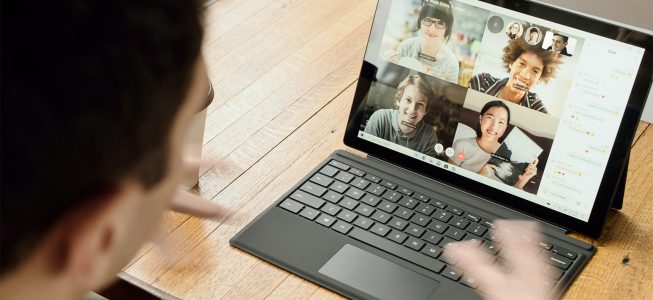
Reconciliation Through Relationships (RTR) is designed to foster friendships between Indigenous and non-Indigenous people. The entire process is Indigenous-led and is guided by carefully chosen facilitators and video learning meant to protect your boundaries and create a safe, positive environment for everyone involved.
The hope is that you come to this space with knowledge and lived experience connected to your Indigenous cultural background. Yet the onus is not on you to be an Indigenous educator. Instead, this is a process of reciprocal learning and growing. RTR is designed to foster mutual transformation and shared reconciliation.
The process is simple. Sign up by filling out this Participant Profile Form for Indigenous Participants. If your application is approved, you’ll be paired with a conversation partner and begin the Reconciliation Through Relationships program.
RTR creates opportunities to share your stories and knowledge with others who are seeking to listen. It gives you a chance to verbalize your experiences—positive or negative—to someone else. This is part of breaking the cycle of Indigenous people’s voices being silent to now being heard loud and clear.
Participating in RTR is a way to actively be a part of accomplishing some of the Truth and Reconciliation Commission’s 94 Calls to Action. Your experiences can contribute to someone’s journey toward better awareness and understanding of Indigenous peoples and issues, which in turn helps create stronger non-Indigenous allies, which are needed in Canada.
As an Indigenous participant, you will receive an honorarium of $500. As an additional bonus, during the program you will receive a free six-month subscription to APTN lumi (Aboriginal Peoples Television Network).
Applicants are carefully vetted through a detailed questionnaire. The questionnaire identifies candidates who are curious, genuine about forming relationships, and who have done prior work in both personal healing and learning about Indigenous issues. It also identifies factors such as sharing the same gender, faith background, interests, location, etc., and uses these details to determine the best match for you and your non-Indigenous conversation partner.
This process is about forming cross-cultural friendships; it’s not all about heavy conversations, but we also realize that some of the topics participants discuss together can stir up difficult emotions. If you are engaged in counselling, healing, or self-care work related to trauma or mental health needs, RTR may not be the best space for you at this time.
The minimum time commitment for this initiative is six one-hour meetings over four months (three meetings with the other pairs, and three meetings with the person you are paired with). These meetings are scheduled based on the availability of the individual pairs. These meetings can be online or in person, depending on the locations and preferences of each pair.
You will go through a resource on Indigenous history in Canada at your own pace during the program. You and your conversation partner can choose between watching a series or film (such as First Contact by Aboriginal Peoples Television Network) or reading Indigenous Writes: A Guide to First Nations, Métis, & Inuit Issues in Canada by Chelsea Vowel. Materials will be provided.
If you wish to continue your learning journey about Indigenous peoples in Canada, visit our learning community page. You can sign up here to begin forming your own transformative relationships through RTR.
This video gives you a glimpse into the relationships formed between two participants in RTR’s pilot project, Holly Fortier and Xenia Chan. To learn more about how to engage in these kinds of cross-culture relationships, jump to the end of the video (10:48 timestamp) to hear Ji-gaabiikwe (Diane Campeau) from iEmergence describe eight guiding principles.
TO LEARN MORE about JOINING RTR email us at